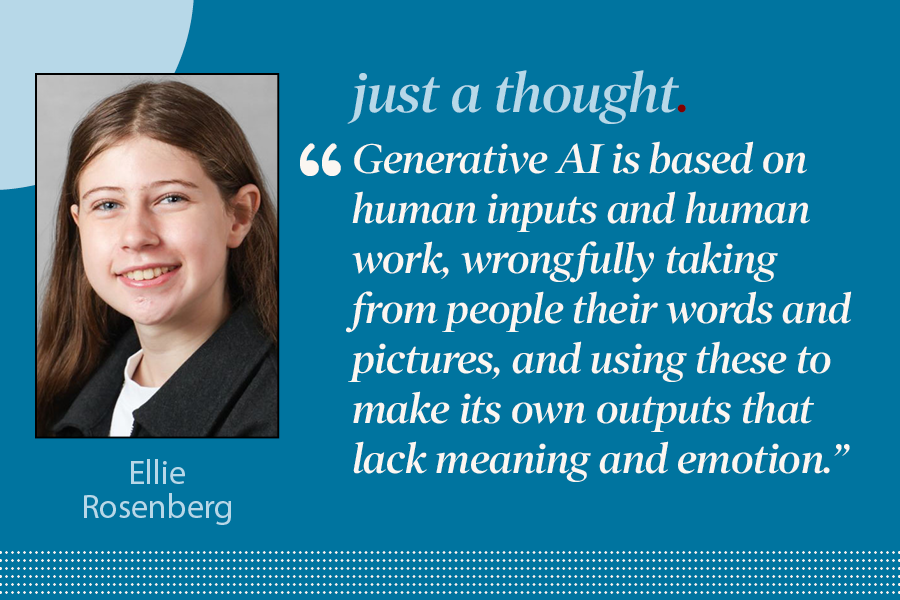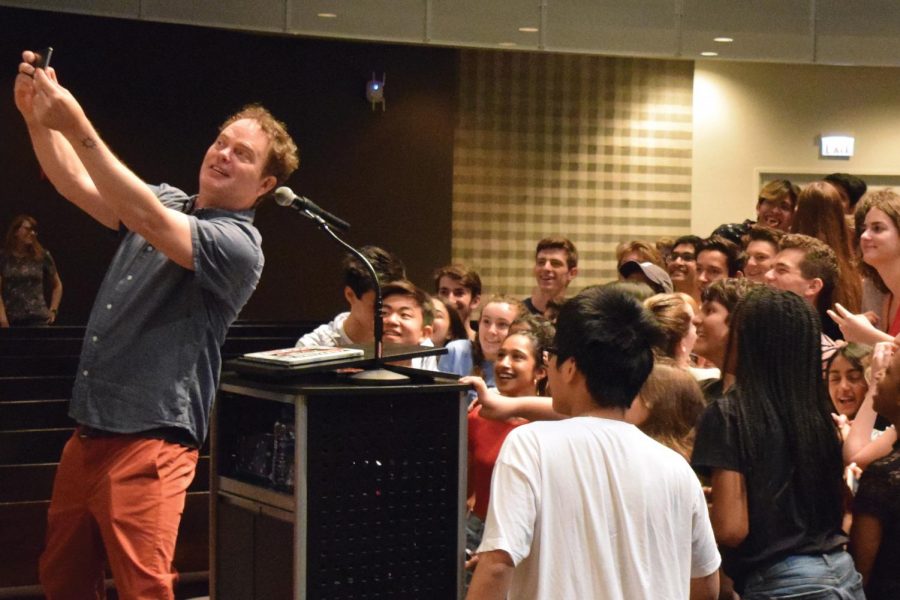Let it Rainn
Actor Rainn Wilson explained that achieving happiness cannot be solved with a formula or uniform approach
Elena Liao
SUPER SELFIE. Rainn Wilson, an actor known for his role as Dwight Schrute in “The Office,” takes a selfie with U-High students who attended the optional assembly May 24. Wilson spoke about his production company, SoulPancake, and its role in his efforts to change the world.
May 31, 2018
At an assembly May 24, actor Rainn Wilson spoke about acting, his experiences and lessons he learned in life. Mr. Wilson, who graduated from New Trier High School, returned to Chicago to perform in the Steppenwolf Theatre play “The Doppleganger,” for which he plays both a British copper-industrialist and a kindergarten teacher. “It’s really a lot of fun, and it’s funny,” Mr. Wilson said, “but it’s also a dark skewering of politics and international economics.”
After his talk to U-High, Mr. Wilson sat down with The Midway for a few questions. His answers were edited for length and clarity.
On “The Office,” Dwight is a very particular type of role. Have you been limited by, or typecast based on that role?
It’s always a challenge when you get to be well known as a character on a television show. I’m super grateful for Dwight. It allowed me to buy a house, and incredible doors have opened up, I’ve met incredible people from being on that show and playing that role, and I’m super, super grateful. But, yeah, it is a little bit limiting in that people view me, especially in Hollywood, pretty much as just playing that kind of role or roles just like it. But I’ve played dozens of roles before Dwight, and I’ll play dozens of roles after I play Dwight, and people will either see that or they won’t. I’m developing some things for television, for the future that are really interesting roles that will be very different than Dwight.
What do you consider to be the most important aspect of being successful in what you do?
I think the most important aspect of being successful is that you have to recognize that part of it is from you own efforts, but part of your success is that you just happen to be in the right place at the right time. That brings a certain humility, and then your obligation is to give back. Whether you’re religious or nonreligious, I think everyone can agree that service to others is really the highest expression of what it is to be a human being, it’s something to strive for and emulate.
Could you talk a little about the charity, Lide Haiti, that you helped start with your wife?
My wife and I visited Haiti in 2009, and visited a bunch of schools and really fell in love with the country and were very moved by what was happening there. Two months later was the earthquake. Over 200,000 people died in a matter of minutes. We knew that we needed to do something, that we needed to give back. Girls in Haiti are treated essentially like work animals. So this population, that has been so subjugated, really deserves to have a special focus put on it. We do scholarships for school, we do tutoring, we help girls pass their tests, get their uniforms together and what they need to succeed in school, besides teaching them art, poetry, photography, drama, and other things that allow them to find their voice and find their expression. We work in about 13 locations with almost 500 girls.
How do you think people should discover what they really love doing?
You try doing a lot of different things, and you read a lot of books and you take a lot of trips, and find what is true for yourself. You don’t inherit the truth of your parents, and you don’t inherit the truth of the society around you. You have to find what’s true and what works for you, and whatever ignites you. If something excites you, and you feel like, “Oh, I can do that. I can do that well, and I can make a difference,” you should absolutely be drawn like a moth to the flame.































































